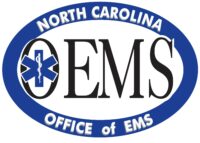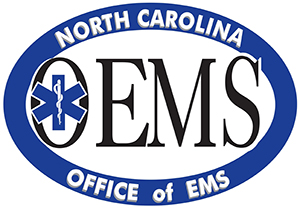Salary $18.00 Hourly
Job Type Part-time – Self-Scheduled
Location 1817 Glendale Dr. Wilson, North Carolina
Department EMERGENCY MEDICAL SERVICES (EMS)
Join a professional EMS system with advanced protocols, and clinical equipment, including automatic CPR devices, IV Infusion pumps, advanced monitor/defibrillators, commercial immobilization equipment, and advanced dispatching technology. Just 30 minutes east of Raleigh, Wilson County is one of the nation’s fastest growing cities, boasting an advanced EMS System with the latest technology and prehospital care trends available to Emergency Medical Services.
GENERAL STATEMENT OF JOB
Performs advanced human support work providing basic level emergency medical care, maintaining records and files, preparing reports, does related work as required. Work is performed under the moderate supervision of the EMT Paramedic Supervisor.
SPECIFIC DUTIES AND RESPONSIBILITIES
Responds to emergency calls as a mobile unit attendant or driver, performing necessary rescue work in accordance with established protocols for basic life support; assesses scene for team safety; evaluates conditions of patients, gathers pertinent information, including patient’s medications, allergies, medical history, etc., and determines proper treatment; administers necessary emergency medical care, monitoring vital signs and performing basic life support skills.
Prepares and transports sick or injured persons to appropriate medical facilities, administering and directing others in administering treatments to patients while en route to hospital, as necessary; communicates with medical facility, notifying them of incoming emergency; prepares patient information and documents treatment given on ambulance call reports and provides to the medical facility.
Plans, performs and directs patient extrication and rescue operations; coordinates work with other public safety agencies during emergencies or disaster situations.
Participates in a continuous training program to improve competence in medical technical work and in ambulance service and operation; studies street and road patterns and networks of the county in order that future runs may be made with minimum difficulty and delay.
Inspects and tests ambulance and emergency equipment, maintaining proper inventory of equipment and supplies; cleans and sanitizes ambulance and equipment, ensuring proper and good working order; makes routine adjustments to equipment and reports other than minor defects for specialized attention; performs routine maintenance and minor repairs to ambulance.
Maintains cleanliness and performs minor maintenance of Emergency Medical Service facilities.
Prepares incident reports and copies of call charges for hospital billing.
Performs other related work as required.
MINIMUM TRAINING AND EXPERIENCE
High school diploma or GED and minimal experience in emergency medical service work, or equivalent combination of education and experience.
SPECIAL REQUIREMENTS
Valid driver’s license in the State of North Carolina
Certification by the North Carolina Office of Emergency Medical Services as an Emergency Medical Technician Basic.
Completion of additional course work and/or certification as determined necessary by the Emergency Medical Services Director.
Please refer to Title 10 Sub-Chapter 3D, Section .1302 of the North Carolina Administrative Code for specific certification requirements.
MINIMUM QUALIFICATIONS OR STANDARDS
REQUIRED TO PERFORM ESSENTIAL JOB FUNCTIONS
Physical Requirements: Must be physically able to operate a variety of machinery and equipment including ambulances, crash trucks, two-way radios, facsimile machines, calculators, hydraulic and air tools, suction units, immobilization equipment, M.A.S.T. trousers, stethoscopes, hand tools, etc. Must be able to operate motor vehicles. Must be able to exert in excess of 100 pounds of force occasionally, and/or up to 75 pounds of force frequently, and/or 50 pounds of force constantly to move objects. Requires the ability to maintain body equilibrium when bending, stooping, crouching, climbing, reaching and/or stretching arms, legs or other parts of body, and physically maneuver over and/or upon varying terrain, surfaces or physical structures. Physical demand requirements are those for Very Heavy Work.
Data Conception: Requires the ability to compare and/or judge the readily observable, functional, structural or composite characteristics (whether similar or divergent from obvious standards) of data, people or things.
Interpersonal Communication: Requires the ability to speak and/or hand signal people to conveyor exchange information. Includes receiving instructions, assignments, or directions from superiors.
Language Ability: Requires the ability to read a variety of correspondence, reports, protocols, medical charts, forms, manuals, guidelines, reference documents, maps, logs, etc. Requires the ability to prepare correspondence, reports, lists, forms, logs, records, student volunteer evaluations, etc., using prescribed formats. Requires the ability to speak to people with poise, voice control and confidence.
Intelligence: Requires the ability to apply principals of logical or scientific thinking to define problems, collect data, establish facts, and draw valid conclusions; to interpret an extensive variety of technical instructions in mathematical or diagrammatic form; and to deal with several abstract and concrete variables.
Verbal Aptitude: Requires the ability to record and deliver information, to explain procedures, to follow oral and written instructions. Must be able to communicate effectively and efficiently in a variety of technical or professional languages including medical terminology and emergency response codes.
Numerical Aptitude: Requires the ability to utilize mathematical formulas; to add and subtract; to multiply and divide; to calculate decimals and percentages; to interpret graphs; to perform calculations involving variables, formulas, square roots, and polynomials.
Form/Spatial Aptitude: Requires the ability to inspect items for proper length, width, and shape.
Motor Coordination: Requires the ability to coordinate hands and eyes rapidly and accurately in using emergency medical equipment and hand tools.
Manual Dexterity: Requires the ability to handle a variety of items such as emergency medical equipment and hand tools. Must have minimal levels of eye/hand/foot coordination.
Color Discrimination: Requires the ability to differentiate between colors and shades of color.
Interpersonal Temperament: Requires the ability to deal with people beyond giving and receiving instructions. Must be adaptable to performing under stress and when confronted with emergency situations.
Physical Communication: Requires the ability to talk and hear: (Talking: expressing or exchanging ideas by means of spoken words. Hearing: perceiving nature of sounds by ear.) Must be able to communicate via a telephone and two-way radio.
KNOWLEDGE, SKILLS AND ABILITIES
General knowledge of emergency medical procedures and techniques.
General knowledge of equipment and supplies employed in the emergency care of patients and victims of accidents.
General knowledge of procedures of extrication, movement of patients, rescue techniques, transportation and psychological needs of a patient.
Working knowledge of County geography and of location of medical facilities and roads and streets within the County.
Working knowledge of radio communications equipment.
Skill in evaluating a patient’s condition and applying appropriate emergency medical care.
Ability to respond quickly and calmly to emergency situations.
Ability to safely drive an ambulance under emergency conditions.
Ability to understand and follow oral and written instructions.
Ability to lift substantial weight.
Ability to deal tactfully, courteously and firmly with the public.
Ability to establish and maintain effective working relationships as necessitated by work assignments.
Special Note: To perform this job successfully, an individual must be able to perform each essential function satisfactorily. The requirements listed are representative of the knowledge, skill and/or ability required. Reasonable accommodations may be made to enable an individual with disabilities to perform the essential functions.
Last Revised: 4/2/2015
Certification Level: EMT
County: Wilson
Closing Date (if any):

